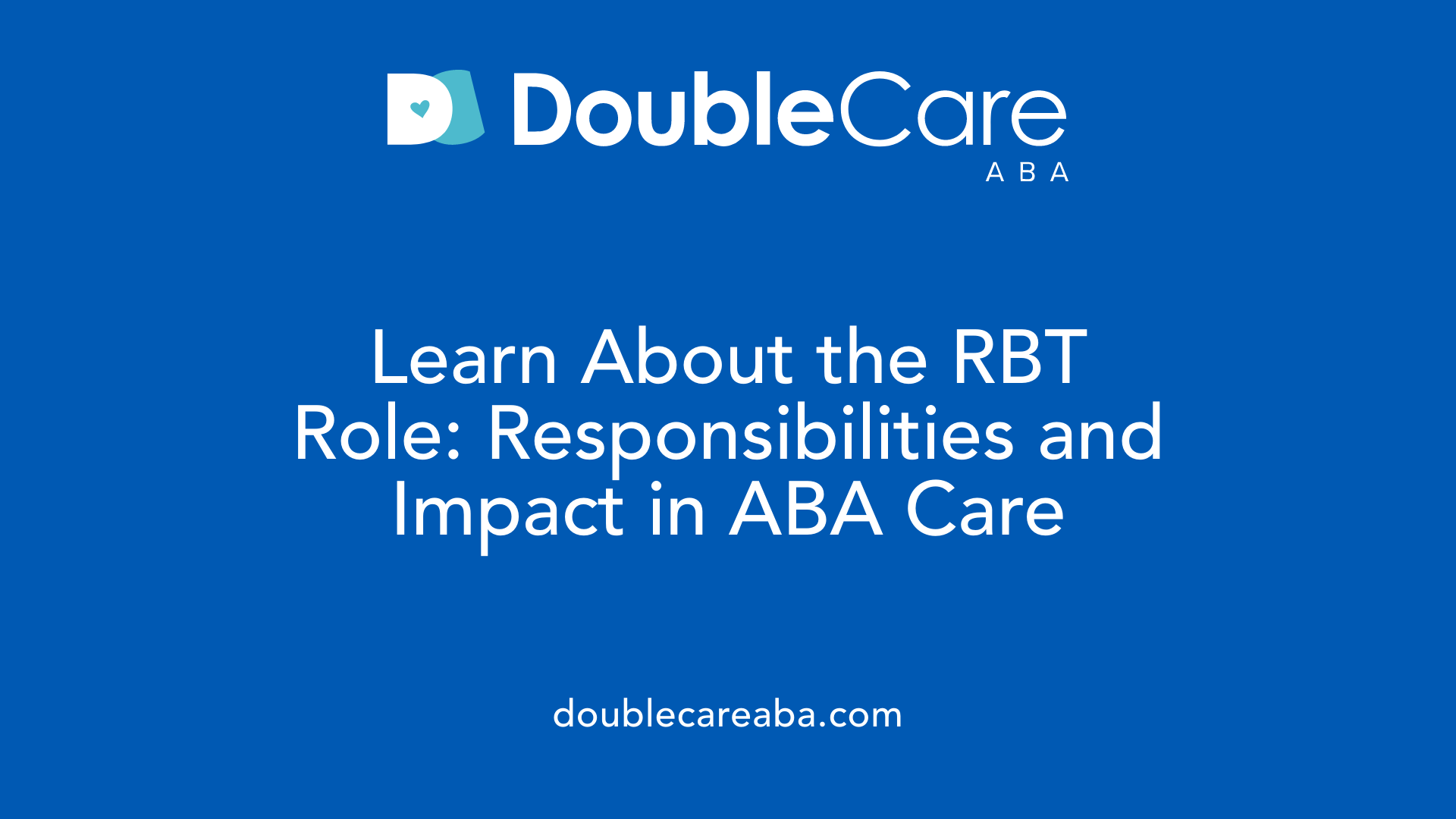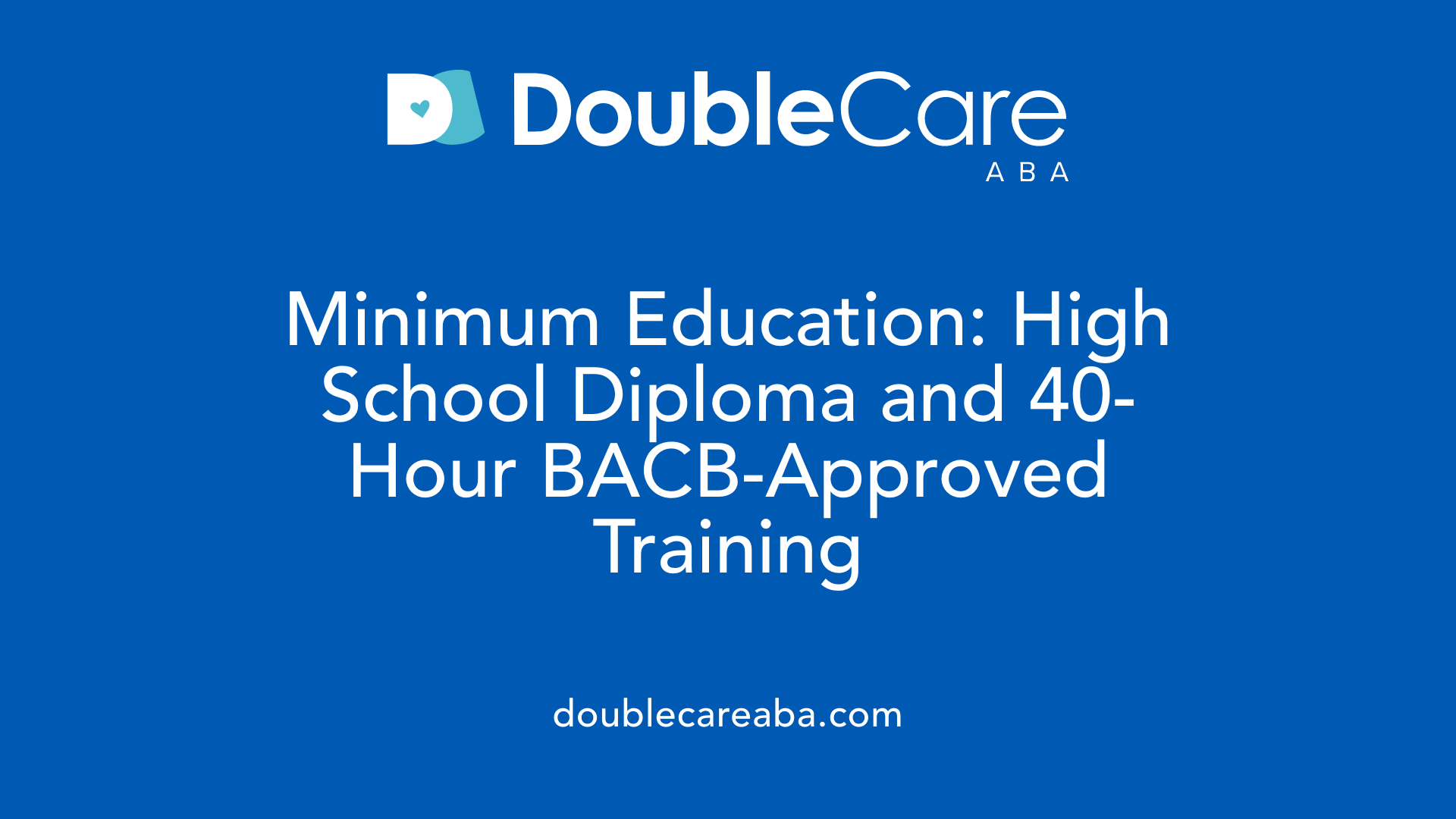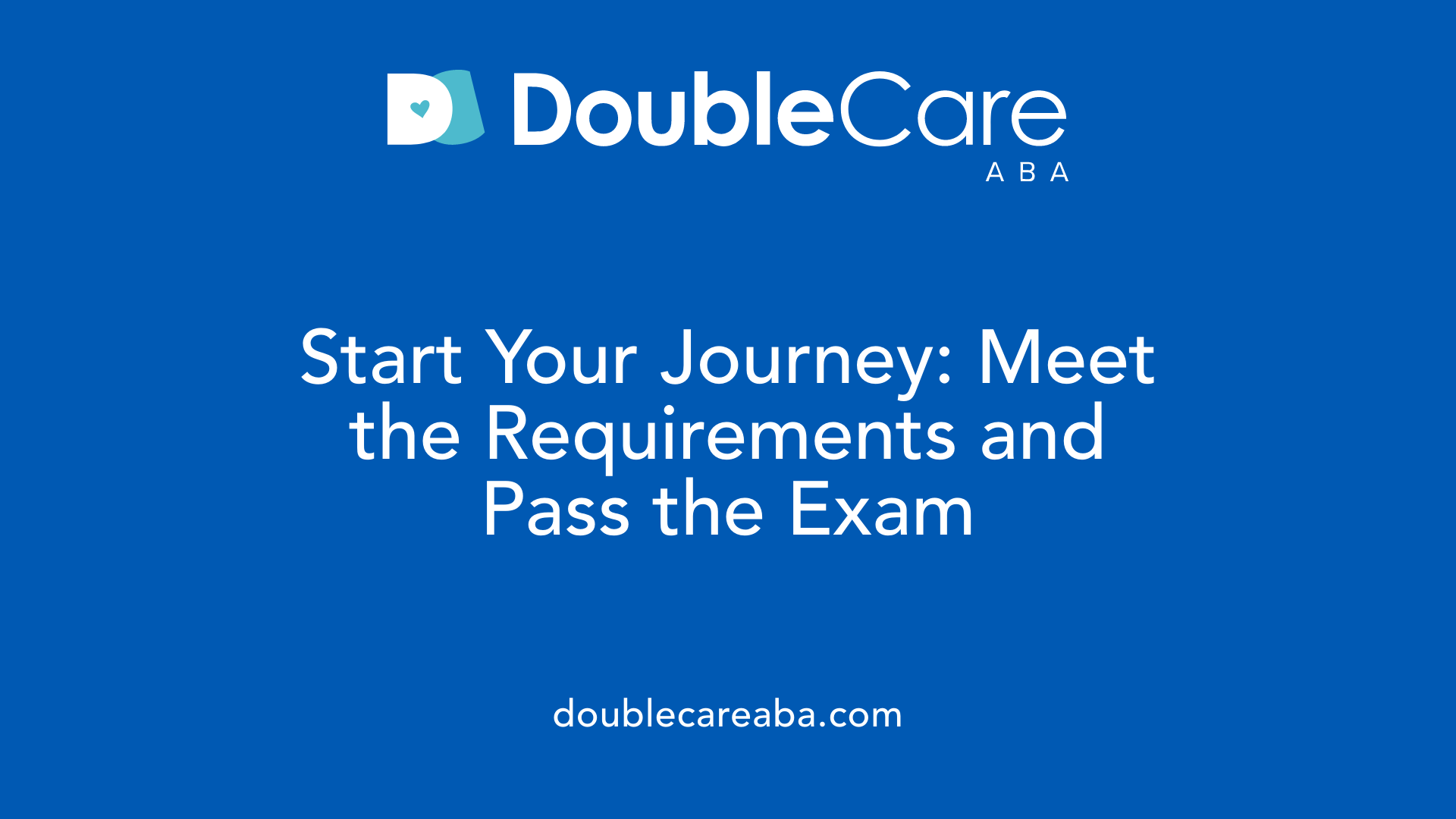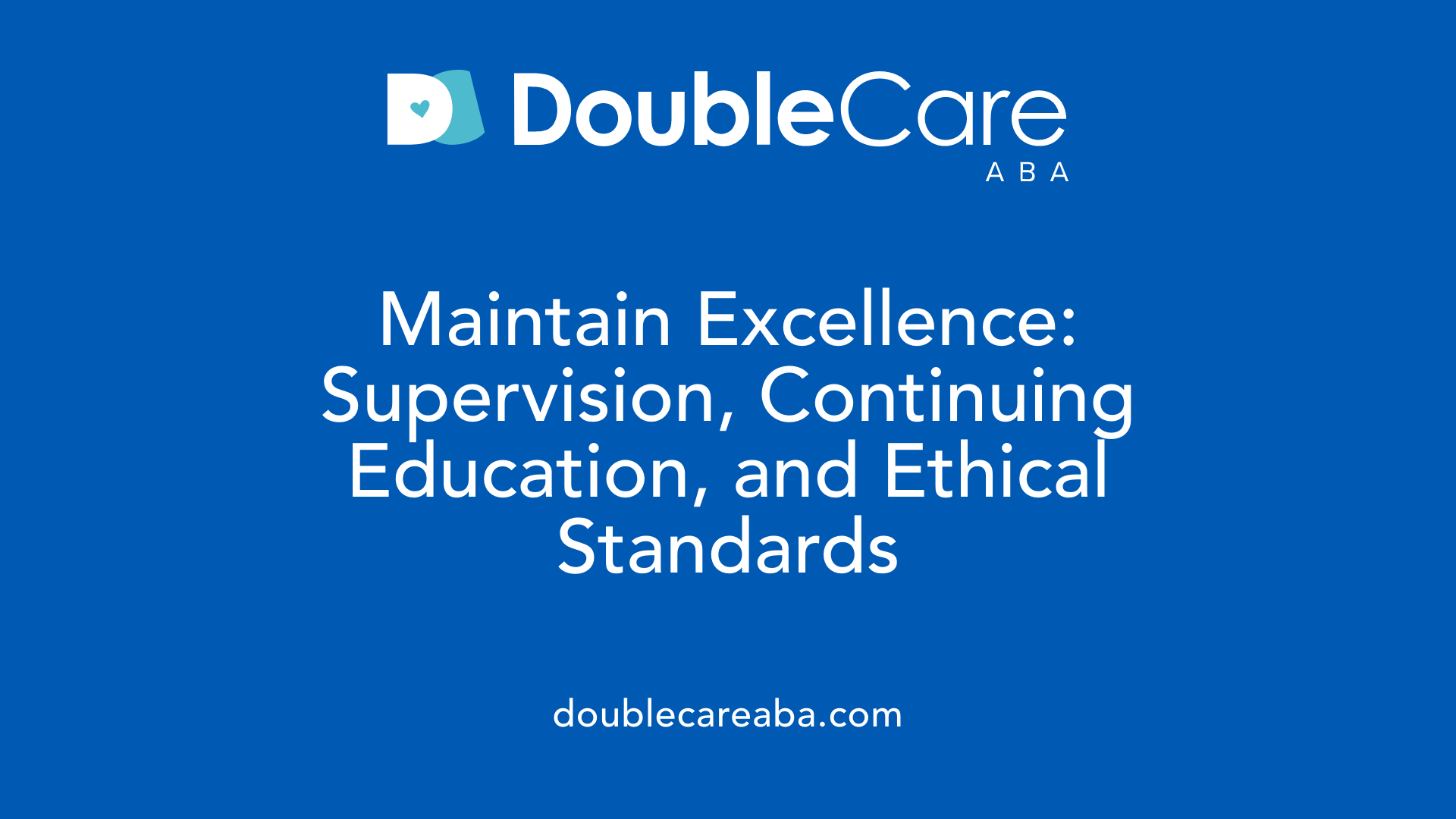Embarking on the Journey to Becoming an RBT
The path to becoming a Registered Behavior Technician (RBT) is structured, rewarding, and designed to prepare individuals to support those with behavioral and developmental challenges effectively. As a paraprofessional in behavior analysis, RBTs play a crucial role in delivering ABA (Applied Behavior Analysis) services under supervision. This article provides a comprehensive guide on how to achieve RBT certification, including requirements, training, examination procedures, and ongoing professional development to support a successful career in this growing field.
Understanding the RBT Certification and Role

What are the requirements and steps involved in becoming a Registered Behavior Technician (RBT)?
Becoming an RBT involves several clear steps. First, candidates must be at least 18 years old and hold a high school diploma or equivalent. The process begins with completing a 40-hour training program that is approved by the BACB, focusing on ABA principles, ethics, data collection, and behavior intervention techniques.
After completing the training, applicants must pass an initial competency assessment conducted by a BCBA or another qualified professional. This assessment evaluates practical skills through direct observation or role-playing scenarios. Once that is successfully completed, candidates are eligible to apply for certification by submitting necessary documents, including proof of training, assessment results, and a background check.
The final step is to pass the certification exam, which consists of 85 multiple-choice questions and is administered online via Pearson VUE. Successful candidates are then officially certified as RBTs and can start practicing under supervision.
Renewal and ongoing professional development are also crucial to maintain certification, involving annual supervision, continuing education, and adherence to BACB standards.
Educational and Training Requirements

What educational qualifications are required to become an RBT?
Becoming a Registered Behavior Technician® (RBT®) requires meeting specific educational prerequisites. The minimum educational requirement is a high school diploma or an equivalent credential such as a GED. Unlike some other certifications in healthcare or behavior analysis, a college degree is not necessary to apply for RBT certification.
In addition to educational credentials, aspiring RBTs must complete a 40-hour training program that has been approved by the Behavior Analyst Certification Board® (BACB). This training covers foundational principles of applied behavior analysis (ABA), including behavior intervention strategies, ethics, data collection, and assessment methods.
After training, candidates must demonstrate practical skills through a competency assessment, pass a background check, and succeed in the certification exam. The entire process generally spans approximately 3 to 6 weeks, providing an accessible route into the field of ABA. This qualification acts as a stepping stone toward further certification possibilities, such as becoming a Board Certified Assistant Behavior Analyst® (BCaBA) or a Board Certified Behavior Analyst® (BCBA), which require additional education and experience.
How long does it typically take to become an RBT?
Most candidates complete their route to becoming an RBT in about 2 to 3 months. The timeline varies depending on individual pacing, availability, and readiness to complete each step.
The process begins with enrolling in and completing the required 40-hour BACB-approved training program, which is designed to cover essential topics like ethics and behavior change procedures. Once training is completed, candidates must pass a competency assessment that evaluates their practical skills—this must be done within 90 days of training completion.
Following the assessment, candidates need to prepare for and pass the RBT certification exam, which consists of 85 multiple-choice questions covering various areas like measurement, assessment, skill acquisition, and professional conduct. Effective preparation may involve around 40 to 80 hours of study using resources such as study guides, practice questions, and online quizzes.
Prerequisites include being at least 18 years old, having a high school diploma or equivalent, and passing a criminal background check. Combining these steps, most individuals complete all requirements within a 2 to 3 month timeframe, making it a viable and swift entry point into a rewarding career in ABA.
Application and Examination Process

What is the process for obtaining RBT certification, including examination and application procedures?
The pathway to becoming a Registered Behavior Technician® (RBT®) begins with meeting essential eligibility criteria. Prospective candidates must be at least 18 years old and possess a high school diploma or an equivalent qualification. The next step involves completing a 40-hour training program approved by the Behavior Analyst Certification Board® (BACB). This training covers critical areas such as behavior intervention strategies, ethics, data collection, and ABA principles.
After finishing the training, applicants need to coordinate with a qualified BCBA (Board Certified Behavior Analyst) or BCaBA (Board Certified Assistant Behavior Analyst) supervisor to conduct a competency assessment. This assessment is crucial for demonstrating practical application skills, which are evaluated either through direct observation or role-playing scenarios.
Once the competency assessment is successfully completed, candidates submit their application for certification via their BACB account. The application process requires uploading documentation including proof of training completion, the competency assessment, and a background check.
The final step is passing the RBT certification exam. The exam comprises 85 multiple-choice questions, designed to test knowledge across six domains such as measurement, assessment, behavior reduction, skill acquisition, documentation, and professional conduct. It is administered online through Pearson VUE and must be completed within 90 minutes.
After passing the exam, candidates receive their certification. Certified RBTs are required to maintain their credential through annual renewal processes, which include ongoing supervision, professional development, and demonstrating continued competence.
Supervision and Certification Maintenance

What are the ongoing requirements for maintaining RBT certification?
To keep their RBT credential active, certified individuals must meet specific supervision and professional development standards outlined by the BACB. They are required to participate in regular supervision sessions with qualified supervisors, such as a BCBA or BCaBA. Annual renewal involves completing at least 20 hours of continuing education, including a minimum of 3 hours in behavioral ethics, to ensure ongoing competence.
Major steps for renewal include submitting a renewal application on time, updating supervision documentation, and paying any associated fees. Maintaining adherence to the RBT Ethics Code is essential throughout this process. Documentation of work, supervision hours, and ongoing training must be preserved for at least seven years, underscoring the importance of thorough record keeping. These protocols help preserve the quality and integrity of behavior analytic services.
Additional guidance and detailed procedures are available in the RBT Handbook and on the BACB's official website, ensuring transparency and consistency for all RBTs seeking to maintain their certification.
Career Opportunities and Professional Development

What career opportunities exist for RBTs?
Registered Behavior Technicians® (RBTs) have a variety of pathways to expand their careers within the field of applied behavior analysis (ABA). While many RBTs start by implementing behavior intervention plans under supervision, advancing to leadership roles is common.
One clear advancement route is moving into roles such as Lead RBT or Senior RBT. These positions involve taking on supervisory responsibilities, mentoring new RBTs, and overseeing treatment delivery. Salaries for these roles generally range from $45,000 to $60,000 annually, particularly in regions like South Florida.
For those interested in designing treatment plans and working more independently, becoming a Board Certified Behavior Analyst (BCBA) is a prominent goal. This graduate-level certification allows professionals to create, supervise, and evaluate intervention strategies independently. BCBAs often earn between $70,000 and $90,000 per year.
Beyond clinical roles, RBTs may find opportunities in educational settings, such as working within school systems or special education programs. These roles support students with developmental or behavioral challenges and typically offer salaries from $40,000 to $55,000.
Many RBTs further their careers by obtaining additional qualifications or higher degrees in psychology, education, or related fields. Such credentials enable roles like clinical supervisor, case manager, or behavioral specialist.
Outside of ABA-specific positions, RBTs' skill sets also qualify them for roles such as paraprofessionals, respite caregivers, speech or occupational therapy assistants, and staff in residential care or vocational support services. Maintaining ethical boundaries is essential when transitioning into these broader roles.
What resources are available for professional development and continued growth?
Ongoing professional development is vital for RBTs and behavior analysts. Numerous resources support continuous growth, starting with online courses, webinars, and workshops from reputable organizations like the Behavior Analyst Certification Board (BACB) and acclaimed academic institutions, such as the University of Texas at San Antonio (UTSA).
To maintain certification, RBTs must complete annual professional development hours. These can be earned through seminars, specialized courses, or conference participation, often focusing on ethics, new ABA techniques, or advanced intervention strategies.
Mentorship programs and professional organizations, such as local or national behavior analysis groups, offer networking opportunities, collaborative projects, and the chance to pursue certificates of specialization.
For those aiming to deepen their expertise, obtaining higher credentials like the BCaBA (Behavior Analyst Certified Assistant) or BCBA provides increased responsibilities, higher earning potential, and eligibility for more advanced roles.
Additionally, numerous resources are available for exam preparation and skill mastery, including study guides, mock quizzes, and mobile applications such as ABA Wizard. These tools help professionals stay current with best practices and improve their competency.
Utilizing these educational and professional resources ensures RBTs and related professionals remain effective, ethical, and competitive in their careers, while also supporting the evolving needs of the populations they serve.
| Advancement Pathways | Certification Opportunities | Resources & Support |
|---|---|---|
| Lead RBT or Senior RBT | BCaBA, BCBA certifications | Online courses, webinars, workshops |
| Educational roles in schools | Graduate degrees in psychology, education | Mentorship programs |
| Advanced clinical roles | Specializations (e.g., autism, trauma) | Study guides, practice exams, apps |
| Broader healthcare and community roles | Continuing education, conferences | Professional organizations |
How do supervision and mentorship play a role in career growth?
Supervision and mentorship are integral to a successful career in ABA. Experienced supervisors, often BCBAs or BCaBAs, guide RBTs through ongoing training and practical application. Regular face-to-face supervision, including observation and feedback, helps refine skills and ensures high-quality service delivery.
Mentorship programs provide support, guidance, and networking opportunities, shaping the professional growth of emerging practitioners. These relationships often lead to increased responsibilities, enhanced skills, and pathways to further certification.
By actively engaging in supervision and mentorship, RBTs can accelerate their professional development and build confidence in their abilities, ultimately enabling them to take on leadership roles in their organizations.
Stepping into a Future in Behavioral Health
Becoming an RBT is a strategic entry point into the rewarding field of behavior analysis. The certification process is designed to ensure that practitioners are well-prepared, knowledgeable, and capable of making a meaningful difference in clients’ lives. With comprehensive training, supervised practical experience, and ongoing professional development, RBTs can look forward to diverse career opportunities, from direct client support to advanced roles in research and supervision. As the demand for ABA services continues to grow, investing in proper training and certification can lead to a fulfilling career dedicated to improving lives through ethical, evidence-based practices.
References
- Registered Behavior Technician (RBT) - BACB
- How to Become a Registered Behavior Technician (RBT)
- 40 Hour RBT® Online Training: RBT 40 Hour Course
- [PDF] registered behavior technician® handbook | bacb
- How to Become a Registered Behavior Technician (RBT) in Texas
- How to Become a Registered Behavior Technician
- RBT Certification | Registered Behavior Technicians | Free Guide
- How to become a registered behavior technician? - Career Village
- Continuing Education & RBT Training - University of South Florida
- [PDF] Registered Behavior Technician Handbook - BACB













